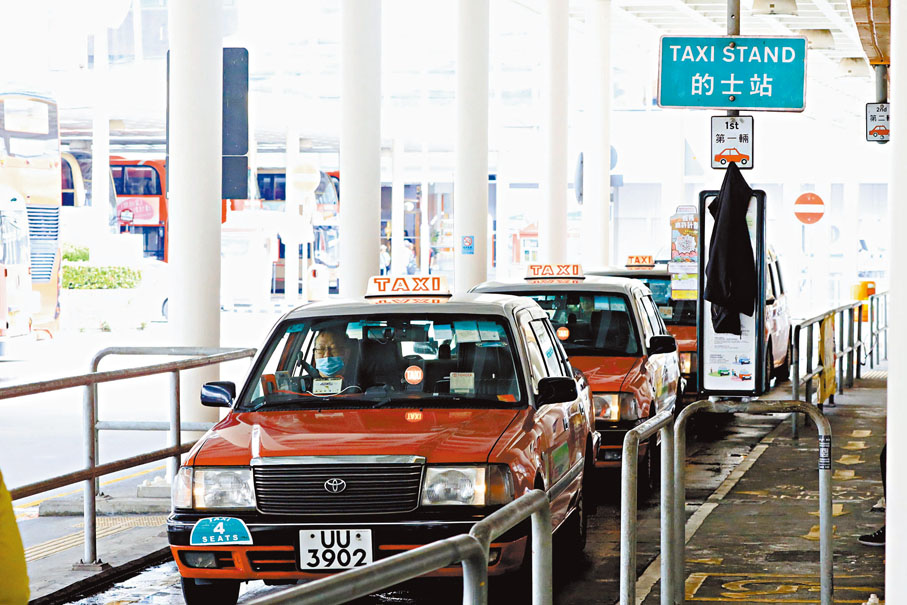【社評雙語道】的士牌照難題 網約車助破解

【原文】摘錄自6月6日香港《文匯報》:特區政府正致力循引入的士車隊制度及探討將網約車規範化,促進的士業良性競爭、提升服務。6月5日,運輸及物流局表示,運輸署計劃發出最多5個的士車隊牌照,目前共收到15份申請,預計下月公布結果。
本港的士業因牌照制度限制了競爭,導致利益固化,影響服務改進,整個行業改革勢在必行。引入的士車隊制度,邁出改革第一步,可在一定程度上破除業界積弊;下一步應妥善解決歷史遺留的的士牌照問題,並允許網約車合法經營,提供多元化的優質的士服務,滿足公眾需求。
本港的士牌照屬終身制,並限定發牌數量,目前全港有1.8萬個的士牌照,其中1.5萬個為市區的士牌照。政府自1994年停止增發市區的士牌,且政府當初發出牌照時,並沒有附帶任何直接與服務質素有關的條件。因此,的士業是「供方市場」,即使市民、遊客對的士需求越來越大,但的士服務並無相應提升,反而拒載、兜客、濫收車資等亂象屢禁不絕,公眾要求的士業改革的呼聲越來越強烈。
去年立法會三讀並通過關於改善的士服務的條例草案,包括引入的士車隊制度,意在改變行業生態,鼓勵業界精益求精。政府表明,的士車隊持牌人必須維持適當服務,包括提供手機程式、網頁和電話熱線,供乘客預約車隊的士;提供至少兩種電子支付方式以便利乘客繳付車費等。若車隊持牌人未有維持適當且具效率的車隊服務,運輸署可隨時派員研訊,不達標者最嚴重可被釘牌。引入的士車隊制度後,車隊有權管理司機,乘客有不滿可直接向車隊投訴,一經證實,車隊作出相應處罰,有利改善服務。
的士車隊制度市場反應正面,牌照申請熱度超出預期。有參與申請的的士業界中人亦認同,在特區政府的支持下,能打造香港的士品牌,為乘客提供優質服務的同時,亦為司機提供良好的就業環境,「希望借車隊制度,給香港的士業帶來新氣象。」
有競爭才有進步。除了引入的士車隊制度外,網約車近年在世界各地大行其道,在本港也日漸成氣候,無可避免與的士業界構成競爭。將網約車合法化並納入規管,成為不可迴避的問題。
本港特殊情況,的士不僅是交通工具,多年來也是投資工具,的士牌照持有人可永久透過出手、運營、租賃等方式獲得回報,造成的士牌價高達數百萬港元計。網約車在港合法化,難免衝擊的士牌照持有人及相關持份者的利益,容易引起社會爭議。如何照顧的士牌照持有者利益,成為網約車在港合法化的關鍵障礙。本港市民、遊客對優質交通服務需求與日俱增,網約車合法化是大勢所趨,符合多方利益。政府、業界要集思廣益、求同存異,找到網約車與的士共存的空間,業界須有接納競爭、打破利益樊籬的勇氣和智慧,才能在科技時代立足,避免被時代淘汰。
Promoting the legalisation of ride-hailing services
【譯文】The SAR Government is actively working to introduce a Taxi Fleet Licence system and explore the standardisation of online ride-hailing services, to promote healthy competition in the taxi industry and improve services. On June 5th, the Transport and Logistics Bureau stated that the Transport Department (TD) planned to issue a maximum of five Taxi Fleet Licenses. Fifteen applications have been received and the results are expected to be announced next month.
The local taxi industry has been limited by the licensing system, resulting in entrenched interests that hinder service improvement, making industry reform necessary. The introduction of the Taxi Fleet Licence is the first step in the reform, which can, to a certain extent, eliminate the accumulated malpractices in the industry. The next step should be to properly solve the historical issue of taxi licenses, and allow online ride-hailing services to operate legally, in order to provide diversified high-quality taxi services to satisfy the public demand.
Local taxi licences are for life and the number of licenses issued is limited. There are currently 18,000 taxi licenses in the whole of Hong Kong, of which 15,000 are for urban taxis. The government ceased issuing urban taxi licenses in 1994, and when the government initially issued licenses, there were no conditions directly related to service quality. Therefore, the taxi trade is a "supply market", and even though the demand for taxis from residents and tourists is increasing, taxi services have not correspondingly improved. Instead, there have been repeated cases of refusing to hire, soliciting passengers, overcharging and so on, and the public's demand for taxi trade reform is becoming increasingly strong.
Last year, the Legislative Council passed the Third Reading of a bill on improving taxi services, including the introduction of a system of Taxi Fleet Licence, with the intention of changing the ecology of the trade and encouraging the trade to strive for excellence. The government has stated that taxi fleet license holders must maintain appropriate services, including providing mobile apps, websites, and telephone hotlines for passengers to book fleet taxis; providing at least two electronic payment methods to facilitate passengers' payment of fares, etc. If the fleet license holder fails to maintain appropriate and efficient fleet services, the TD may at any time send its staff to conduct inquiries, and those who fail to meet the standards may be subject to cancellation of the licence at the most serious level. With the introduction of the Taxi Fleet licence, the fleet will have the authority to manage drivers, and passengers who are dissatisfied with the service can directly complain to the fleet, and the fleet will impose penalties if the complaint is substantiated, which will be conducive to improving the service.
The response to the taxi fleet system has been positive in the market, with the number of applications for licences exceeding expectations. Those in the taxi industry who have participated in the application process also agree that, with the support of the Government, it would be possible to build a brand name for Hong Kong's taxis and provide passengers with quality service as well as a good employment environment for drivers. "We hope to bring a new look to the Hong Kong taxi industry through the fleet system."
Competition is the only way to make progress. In addition to introducing a system of Taxi Fleet Licence, online ride-hailing services have become popular around the world in recent years, and have also become a trend in Hong Kong, inevitably competing with the taxi industry. The legalisation and regulation of ride-hailing services has become an unavoidable issue. Given Hong Kong's unique situation, taxis are not only a means of transportation, but have also been an investment tool for many years. Taxi license holders can permanently obtain returns on their licences by selling, operating and leasing them, resulting in taxi license prices reaching several million Hong Kong dollars. The legalisation of online ride-hailing services in Hong Kong will inevitably impact the interests of taxi license holders and related stakeholders, and is likely to cause social controversy. How to take care of the interests of taxi license holders has become a key obstacle to the legalisation of online ride-hailing services in Hong Kong.
The demand for high-quality transportation services from Hong Kong residents and tourists is increasing day by day, and the legalisation of online ride-hailing services is an inevitable trend that benefits multiple parties. The government and the industry need to pool their wisdom and seek common ground while accommodating differences, so as to find room for online ride-hailing services and taxis to coexist. The industry needs to have the courage and wisdom to accept competition and break down the barrier of interests, in order to gain a foothold in the technological era and avoid being eliminated by the times.
◆ Tiffany
